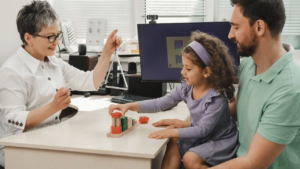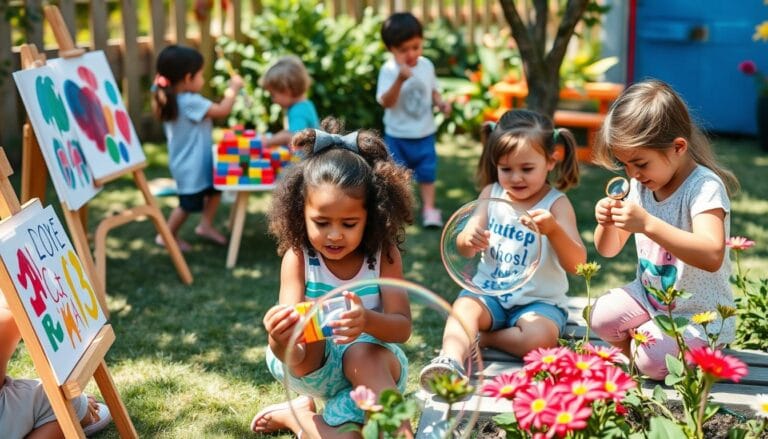
Young kid who is a problem Hope for Problem Children
Young kid who is a problem Raising a troubled youth can be very tough for parents. They often worry about their child’s safety and deal with tough issues like substance abuse. But, there’s always hope for a better future.
Parents can make a big difference by showing unconditional love and spending quality time with their child. Being a safe place for them is key. It’s important to know their friends, interests, and what they learn in school.
When disciplining a defiant child, do it with purpose, not anger. Physical violence is never okay and only makes things worse.
Getting professional help, like counseling, can really help. It supports the well-being of troubled youth. With support, parents can help their child overcome challenges and build a bright future.
Key Takeaways
- Young kid who is a problem Parents of troubled youth often face immense challenges, but there is always hope for positive change.
- Providing unconditional love, quality time, and a safe haven can help nurture growth in problem children.
- Staying involved in your child’s life and knowing their friends and interests is crucial.
- Discipline should be purposeful and never involve physical violence.
- Seeking professional help, such as counseling and specialized programs, can effectively address behavioral issues in high-risk youth.
Understanding Troubled Youth
In today’s world, it’s key to understand the struggles of troubled youth. Knowing their challenges helps us support them. This support is crucial for them to lead fulfilling lives.
Defining “Troubled Youth”
“Troubled youth” means young people facing big emotional, behavioral, and social problems. These issues can make it hard for them to succeed in life. They might show disruptive behavior, defy rules, or struggle with mental health.
“About 1 in 10 kids and teens face emotional issues. These can cause big problems at home, school, and even with the law.”
Common Behaviors and Challenges
Troubled youth often act out in many ways. They might:
- Have temper tantrums and resist authority
- Show aggression towards others and animals
- Destruct property and lie
- Break rules and get involved in crime
- Use drugs and engage in risky sex
- Deal with mental health issues like depression and anxiety
These actions can harm not just the youth but also their families and communities. Living with a child who acts out can be very tough. It makes home life chaotic and draining.
| Disorder | Age of Onset | Prevalence |
|---|---|---|
| Oppositional/Defiant Disorder | Children and teenagers | 1 out of every 20 children |
| Conduct Disorder (Childhood-onset type) | Under 10 years old | Varies |
| Conduct Disorder (Adolescent-onset type) | Over 10 years old | Varies |
| Antisocial Personality Disorder | Over 18 years old | Varies |
The teenage brain is still growing. The part that controls emotions and decisions is changing a lot. This can lead to acting impulsively and not thinking about the future.
Understanding troubled youth’s challenges helps us support them better. With the right help, they can overcome their struggles and have a better future.
Identifying the Root Causes
To help troubled youth, we must find the root causes of their behavior. Understanding these factors helps parents and professionals create effective support plans. This way, we can help the child heal and grow.
Family Dynamics and Influences
Family dynamics greatly affect a child’s behavior. Conflicts, substance abuse, and neglect can harm a child’s emotional health. Research shows that violence and harsh parenting can lead to behavioral problems.
On the other hand, positive parenting and preventing maltreatment can help. By addressing family issues and supporting both the child and family, we can create a better environment. Understanding the common causes of behavior problems is key.
Peer Pressure and Social Factors
As kids get older, peer pressure and social factors become more important. Bullying, gang involvement, and wanting to fit in can lead to trouble. Children with Conduct Disorder often struggle with aggression and peer relationships.
It’s important to help troubled youth build positive friendships. Encouraging empathy and teaching communication skills can help them resist negative peer influences.
Mental Health and Trauma
Mental health issues and trauma are common among troubled youth. Disorders like anxiety, depression, PTSD, and ADHD can affect their behavior and emotions. Here are some statistics:
| Disorder | Prevalence |
|---|---|
| Anxiety Disorders | 7.1% of children aged 3-17 years |
| ADHD | 9.4% of children aged 2-17 years |
| Depression | 3.2% of children aged 3-17 years |
| Autism Spectrum Disorder | 1 in 54 children |
Trauma, from abuse or significant life changes, can deeply affect a child. Recognizing signs of mental illness, like sadness or self-harm, is crucial for early help.
Access to mental health resources and counseling can greatly help troubled youth. By addressing their mental health and providing trauma-informed care, we can help them heal and thrive.
Effective Communication Strategies
Communication is key when helping troubled youth. Parents and caregivers can make a big difference by using the right strategies. They need to listen well, show empathy, and set clear rules and expectations.
Active Listening and Empathy
Active listening means really paying attention to what the child says. It’s about focusing, understanding, and responding. This helps parents understand their child’s thoughts and feelings better.
Showing empathy is also vital. It means understanding and sharing the child’s feelings. When parents show empathy, they help their child feel less alone and understood.
“Empathy is seeing with the eyes of another, listening with the ears of another, and feeling with the heart of another.” – Alfred Adler
Setting Clear Boundaries and Expectations
Setting clear rules and expectations is just as important. Troubled youth need structure and consistency. This makes them feel safe and helps them understand what’s expected of them.
It’s important to be firm but fair when setting boundaries. Having clear consequences teaches the child about responsibility and decision-making. This helps them grow and learn important life skills.
| Communication Strategy | Impact on Troubled Youth |
|---|---|
| Active Listening | Fosters trust and understanding, allowing the child to feel heard and valued |
| Empathy | Builds a strong emotional connection, helping the child feel supported and less alone |
| Clear Boundaries and Expectations | Provides structure and consistency, promoting a sense of security and accountability |
| Open Communication | Encourages honest self-expression and facilitates problem-solving and growth |
By using active listening, empathy, and clear rules, parents can help troubled youth grow. Open communication and a non-judgmental approach help the child express themselves and seek help. This leads to a brighter future.
Building Strong Relationships
Building strong relationships with troubled youth is key to their growth. Showing trust, unconditional love, and emotional support can deeply impact a child’s life. Spending quality time together is vital for bonding and open communication.
Babies are born to connect with others. They see their caregivers as loving and trustworthy. Through play, they learn to bond with their loved ones.
As toddlers, they understand their interests and needs better. They also learn empathy by watching and imitating others.
Unstructured playtime makes children feel loved and special. Showing interest in their activities strengthens relationships. It helps them express feelings in the right way.
Respecting their feelings builds trust and empathy. Playing games that explore emotions helps them understand feelings better. Giving children opportunities to develop relationships is key for their social skills.
Having positive role models and participating in mentoring programs offer extra support. Joining extracurricular activities, sports, or hobbies boosts self-esteem and social skills.
“The best way to make children good is to make them happy.” – Oscar Wilde
Building strong relationships with troubled youth goes beyond the home. Positive teacher-student relationships improve school safety and reduce absenteeism. They also boost test scores and help students who have faced trauma.
| Strategy | Impact |
|---|---|
| Spending 3 minutes daily to get to know a student | Significantly impacts the relationship |
| Publicly praising students | Serves as a bridge in building better relationships |
| Correcting students’ behavior in private | Crucial for maintaining a positive relationship |
| Creating a realistic and engaging behavior plan | Helps in fostering positive relationships |
| Restorative conversations after a negative event | Maintains and strengthens the teacher-student relationship |
Nurturing strong relationships helps troubled youth face challenges. It sets them on a path to a brighter future.
Addressing Behavioral Issues
Dealing with troubled youth means tackling their behavioral issues head-on. Understanding why they act out and using the right strategies can help. This way, we can teach them to manage their feelings and make better choices.
Positive Reinforcement Techniques
Positive reinforcement is a powerful tool. It rewards good behavior, encouraging kids to make positive choices. This can be through praise, extra privileges, or small rewards, tailored to each child’s needs.
Setting up a reward system can really motivate kids. For instance, a child with anger issues might earn points for staying calm. These points can be traded for rewards, boosting their confidence and self-esteem.
Consistent Discipline and Consequences
Positive reinforcement is key, but so is consistent discipline and consequences. Kids need to see that their actions have effects. Clear rules and consequences teach them responsibility and accountability.
Logical consequences are best. For example, not doing homework might mean losing screen time. This shows kids how their actions impact their lives, helping them make better choices.
“Consistency is key when it comes to discipline. Children need to know that the rules and consequences will be the same every time, regardless of the situation or the parent’s mood. This helps create a sense of security and predictability, which is especially important for troubled youth who may have experienced chaos or instability in their lives.”
Behavior modification strategies are also vital. Teaching anger management or impulse control can help kids handle tough situations better. Techniques like deep breathing or the “stop, think, act” method can be very effective.
By using positive reinforcement, consistent discipline, and targeted strategies, we can tackle behavioral issues in troubled youth. With patience and a commitment to their success, we can help them develop the skills to overcome their challenges and thrive.
Seeking Professional Help
When troubled youth face complex emotional and behavioral challenges, seeking professional help is key. It’s important for parents and caregivers to recognize when a child needs extra support. Signs like persistent disobedience or aggression for over 6 months in younger children are clear indicators.
For pre-adolescents and adolescents, a drop in school performance or repeated drug use are red flags. So are threats of self-harm or harm to others, and extreme difficulty concentrating that hinders daily activities.
Parents should consult a child and adolescent psychiatrist or a trained mental health professional if problems persist. Aggression, acting out, or rebellion against authority lasting more than 6 months in any child is a sign of the need for professional help.
Counseling and Therapy Options
Counseling and therapy offer a safe space for troubled youth to explore their feelings and develop coping skills. Individual therapy gives one-on-one attention, while family therapy involves the whole family. Cognitive-behavioral therapy (CBT) helps children change negative thought patterns and behaviors.
“Therapy helps children and teens cope better, communicate better, and perform better.” – Mental Health America
Therapists help with various conditions like ADHD, depression, and anxiety. Therapy sessions may involve the child and parent together or just the child. Most often, a child meets with a therapist once a week for a few months.
Specialized Programs and Interventions
In some cases, troubled youth need more than traditional therapy. Specialized programs like residential treatment centers or wilderness therapy offer a supportive environment. These programs provide education, life skills training, and therapy tailored to the child’s needs.
| Intervention | Description |
|---|---|
| Residential Treatment Centers | Provide 24/7 care in a structured setting, offering therapy, education, and life skills training |
| Wilderness Therapy Programs | Combine outdoor adventures with therapy to help youth develop self-awareness, resilience, and coping skills |
| Intensive Outpatient Services | Offer a higher level of care than traditional outpatient therapy, with multiple sessions per week |
Parents are key in supporting their child’s therapy and treatment. It’s important to find a therapist both the child and parent feel comfortable with. Meeting regularly with the therapist helps understand how to support the child at home.
Spending quality time with the child daily, even for a few minutes, is crucial. This supports the child during therapy.
If you or someone you know is in immediate crisis, help is available. The National Suicide Prevention Lifeline can be reached by calling or texting 988 or 800-273-8255 (800-273-TALK) for immediate mental health support.
Supporting Academic Success
For troubled youth, achieving academic success can change their lives. It opens doors to a brighter future. We can help them by encouraging school engagement, addressing learning disabilities, and providing educational support.
Parental involvement is key to academic success. Studies show family engagement impacts a child’s performance more than income or education level. Parents can support their child’s education at home, set goals, and celebrate achievements.
Working together with teachers is crucial for troubled youth. Schools have parent-teacher conferences, but regular communication is important. Parents can also help by volunteering and showing appreciation for teachers.
Encouraging School Engagement
Engaging troubled youth in their education is vital. Here are ways to encourage them:
- Create a dedicated study space at home that is free from distractions
- Establish a consistent homework routine and provide support when needed
- Celebrate achievements, both big and small, to boost motivation and confidence
- Attend school events and activities to show support and enthusiasm for learning
- Encourage participation in extracurricular activities that align with the child’s interests
Addressing Learning Disabilities
For troubled youth with learning disabilities, addressing these challenges is crucial. Here are steps to take:
- Work with the school to develop an individualized education plan (IEP) tailored to the child’s specific needs
- Advocate for necessary educational accommodations, such as extra time on tests or assistive technology
- Collaborate with special education professionals to implement effective interventions and strategies
- Consider tutoring or study skills training to help the child develop effective learning techniques
- Provide positive reinforcement and praise efforts rather than focusing solely on results
| Educational Support Strategy | Benefits |
|---|---|
| Individualized Education Plans (IEPs) | Tailored to the child’s specific needs, ensuring appropriate accommodations and support |
| Tutoring | Provides one-on-one attention, helps develop study skills, and boosts confidence |
| School-Home Collaboration | Ensures consistent support, enables early intervention, and promotes student success |
| Positive Reinforcement | Encourages effort, builds self-esteem, and fosters a growth mindset |
“Education is the passport to the future, for tomorrow belongs to those who prepare for it today.” – Malcolm X
By prioritizing education and working with the school system, parents can help their troubled child. They can overcome challenges, develop a love for learning, and achieve academic success. With the right support and guidance, these young individuals can unlock their full potential and build a brighter future.
Promoting Positive Peer Relationships
Helping troubled youth build good friendships is key for their growth. Teaching social skills and encouraging healthy friendships helps them deal with social challenges. Studies show that kids with good social skills do better in school and have better health.
Parents are vital in building trust with their kids, which is crucial for positive friendships. Showing kids how to share and be polite helps their social skills. Play dates are great for kids to make friends and learn to work together.
“The quality of friendships is more impactful on self-esteem than the quantity of friendships.” – Research findings
It’s important to tackle peer pressure and bullying. Middle school kids often face bullying. Parents should help their kids choose friends wisely and teach them to be kind.
Getting kids involved in clubs or groups helps them make friends and feel part of something. Leadership roles and mentoring can boost their confidence and teach them responsibility.
- Good friendships share common qualities such as nurturance, disclosing vulnerabilities, trust, loyalty, and helping friends cope and thrive.
- Positive peer relationships have been found to significantly impact students’ academic achievement, with research indicating that up to 40% of adolescents’ academic success can be attributed to positive peer relationships.
- Having just one close friend can shield children from the negative effects of peer mistreatment.
Teenagers often face social and identity issues. They look to parents and peers for understanding. By fostering positive friendships, parents can help their kids develop the social skills needed for success.
Encouraging Healthy Habits and Hobbies
Supporting troubled youth is key to their bright future. We can do this by promoting physical activity, sports, and creative outlets. These activities help them find positive ways to cope, boost their self-esteem, and discover their talents.
Research shows that physical activity improves kids’ minds and school work. Sports and physical activity also teach teamwork, perseverance, and goal-setting. Kids over 6 should exercise for at least 1 hour daily for an active lifestyle.
Physical Activity and Sports
Team sports or individual activities help manage stress and promote healthy habits. Health-conscious kids have better self-esteem and body image. By modeling good habits and offering physical activities, we support their healthy future.
Creative Outlets and Artistic Expression
Creative activities like music, art, writing, or drama help with self-discovery and emotional healing. They allow youth to express themselves and develop identity. Creativity boosts problem-solving skills and encourages thinking outside the box.
“Art has the power to transform lives, and for troubled youth, it can be a lifeline. Through creative expression, they can find their voice, heal their wounds, and discover their true potential.” – Jane Smith, Art Therapist
To support a child’s interests, parents can offer resources and encouragement. Here are some ideas:
- Enrolling in art classes or workshops
- Joining a school band or orchestra
- Participating in community theater productions
- Attending writing or poetry workshops
- Exploring photography or filmmaking
| Age Group | Recommended Sleep per 24 Hours |
|---|---|
| Infants 4-12 months | 12-16 hours |
| Toddlers 1-2 years | 11-14 hours |
| Preschoolers 3-5 years | 10-13 hours |
| Kids 6-12 years | 9-12 hours |
| Teens 13-18 years | 8-10 hours |
By encouraging healthy habits and hobbies, troubled youth can develop positive coping mechanisms. They can build resilience and discover their unique strengths. With the right support, they can overcome challenges and lead fulfilling lives.
Navigating the Challenges of a Young Kid Who Is a Problem
Raising a young child with problem behavior is tough for parents. It needs a mix of good parenting, self-care, and support. Parents must be patient, resilient, and loving, even when things get hard.
Getting help from child experts is very helpful. They can give insights and strategies for tough behaviors. Having a strong support network of family and friends is also key. They offer advice and a sense of community.
| Statistic | Percentage |
|---|---|
| Children aged 4-6 exhibiting problematic behavior who reported feeling rejected during social interactions | 70% |
| Parents facing challenges with their children’s behavior who felt frustrated and at a loss on how to address the issues effectively | 85% |
| Positive shift in children’s behavior and willingness to reflect on their actions when parents used empathetic responses rather than criticism | 90% |
Self-care is vital for parents. The stress of raising a troubled child can be huge. Taking time for yourself helps you stay strong for your child. Remember, you can’t give what you don’t have.
“Patience, persistence, and love are the keys to unlocking the potential in every child, no matter how challenging their behavior may be.” – Dr. Laura Markham, Parenting Expert
Helping a young child with problems is a big job. It takes time, love, and the right help. With the right strategies, support, and self-care, parents can help their child grow and succeed.
Success Stories and Inspiration
It’s easy to lose hope when facing tough times. But, many success stories show us that change is possible. These stories remind us that our past doesn’t define our future.
Real-Life Examples of Overcoming Adversity
Michael Oher’s story is truly inspiring. He grew up in a tough neighborhood in Tennessee with 13 siblings. Yet, with support and his own drive, he became a successful NFL player. His journey shows the power of staying strong and the impact of positive influences.
Christina Meredith’s story is also powerful. She faced abuse and neglect in foster care. But she didn’t give up. She founded the Christina Meredith Foundation to help others. Her work shows the strength of the human spirit.
Dr. Kat Rosenblatt’s story is remarkable too. She survived sex trafficking and is featured in the National Center for Civil and Human Rights Museum. Her story proves that even in the darkest times, hope and healing are possible.
Insights from Former Troubled Youth
Former troubled youth offer valuable lessons. Kristina Kuzmic, with over 1 billion views on Facebook, shares her life experiences. Her stories give hope and guidance to those facing challenges.
Andrew Bridge, who spent 11 years in foster care, now helps others. As the executive director of the Alliance for Children’s Rights, he shows the importance of support and advocacy. His work is a testament to the power of mentorship.
Destini McAlister’s story is one of hope and change. Adopted at 17, she is now an author, wife, and homeschooling mom. Her journey shows how love and stability can help troubled youth thrive.
| Program | Impact |
|---|---|
| Beat the Odds® | Honored over 600 outstanding high school students since 1990 |
| Christina Meredith Foundation | Advocates for foster care reform |
Programs like Beat the Odds® offer college scholarships and leadership training. These programs help students who have overcome hardships. Alumni, like Dr. Crystal Johnson Stinson, achieve great success and give back to their communities.
“Every child deserves a champion—an adult who will never give up on them, who understands the power of connection and insists that they become the best that they can possibly be.” – Rita Pierson
These stories and insights show us that with support and belief in oneself, troubled youth can overcome challenges. By sharing these stories, we can inspire hope, resilience, and the belief that positive change is always possible.
Conclusion
Young kid who is a problem Helping troubled youth is a big challenge. It needs understanding, good communication, and strong support. We must tackle behavioral issues with positive methods and discipline. Also, getting professional help and supporting their education is key.
Encouraging healthy habits like sports and arts helps them deal with feelings. It’s important to remember that every child can change for the better. They deserve unconditional love and support. Stories of former troubled youth show how much a difference caring adults can make.
The path ahead is tough, but we can’t give up. With the right resources and support, troubled youth can overcome their hurdles. It’s our duty to ensure their well-being and help them grow. Together, we can help them build a brighter future.















